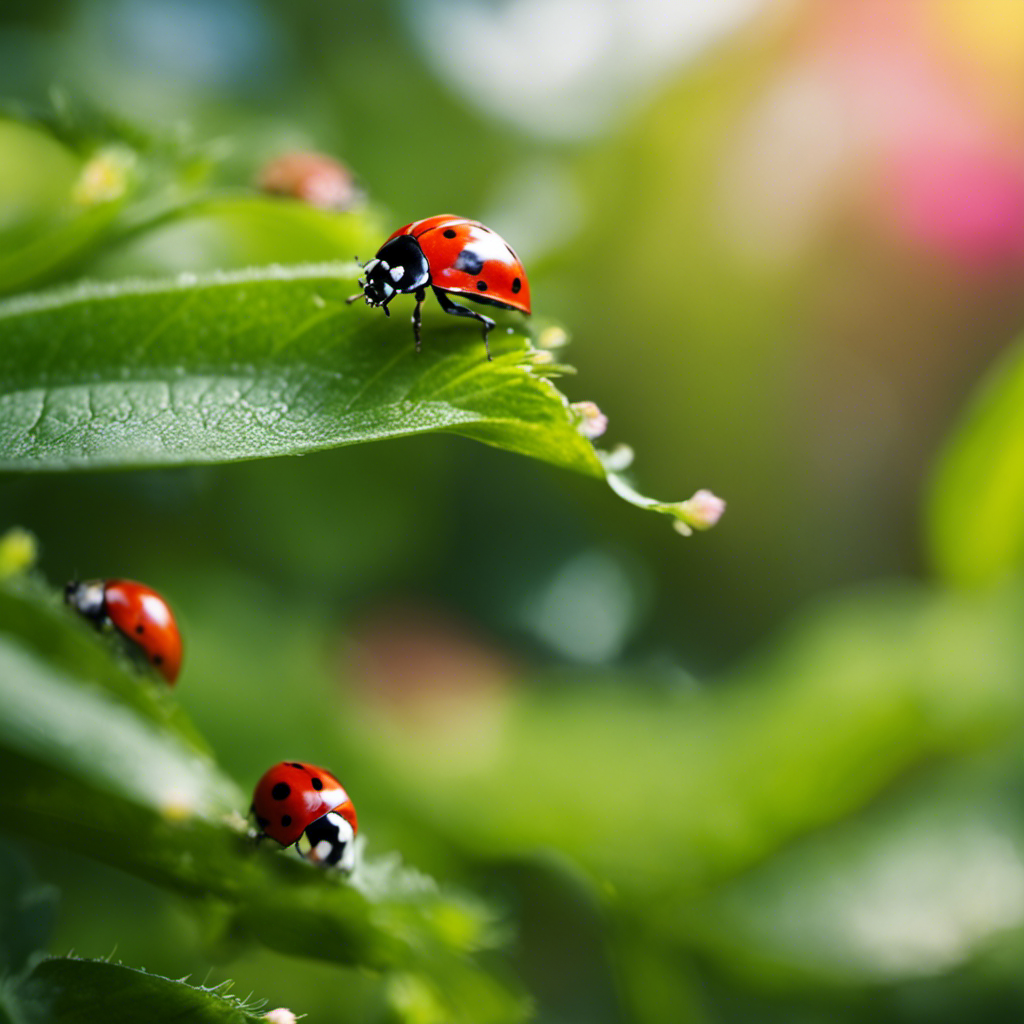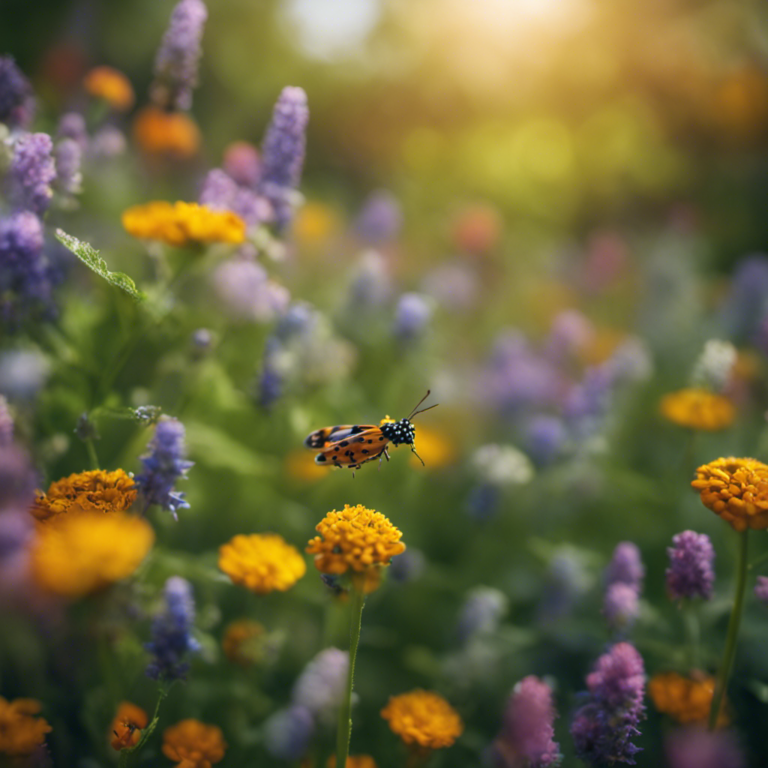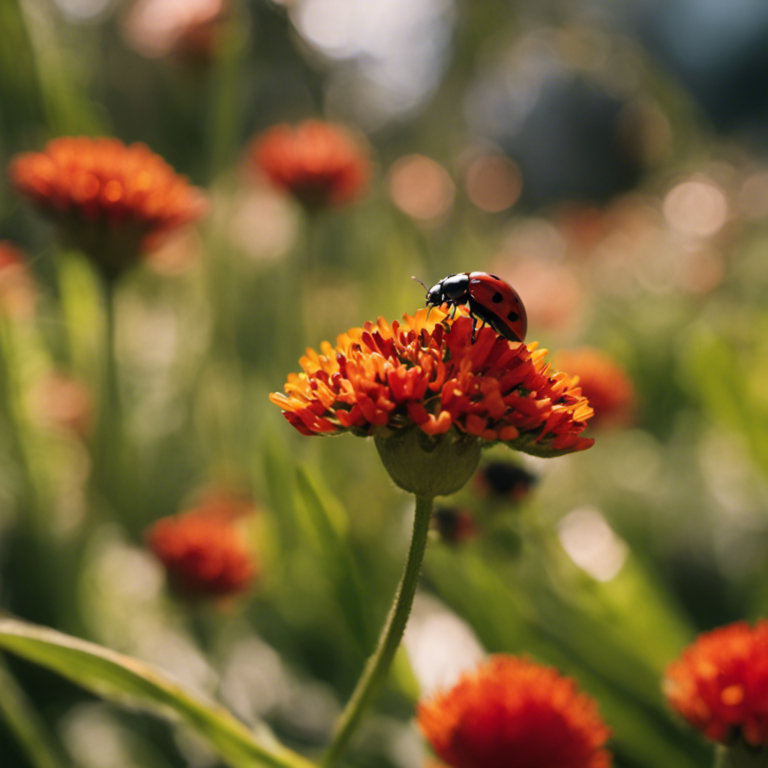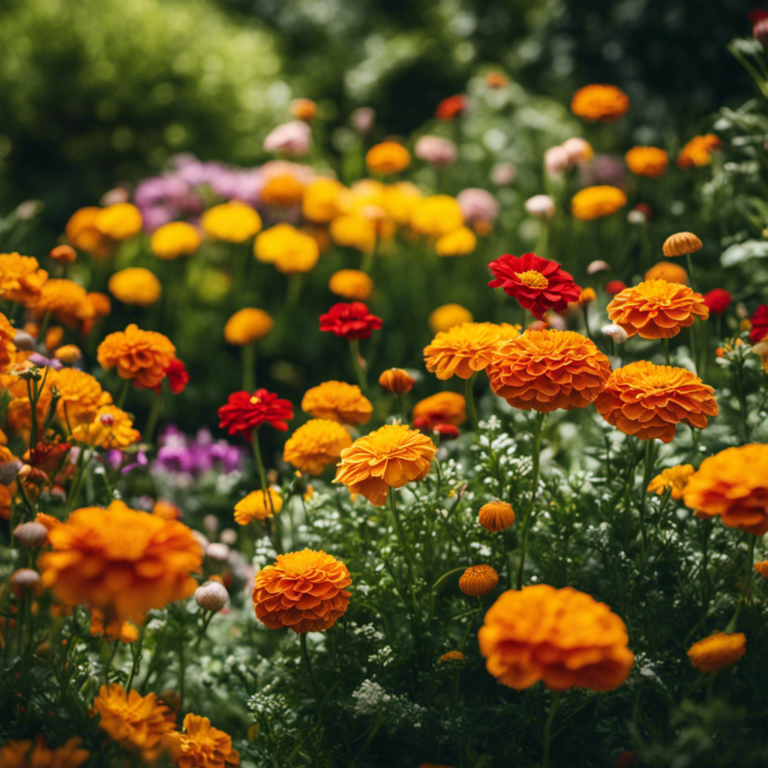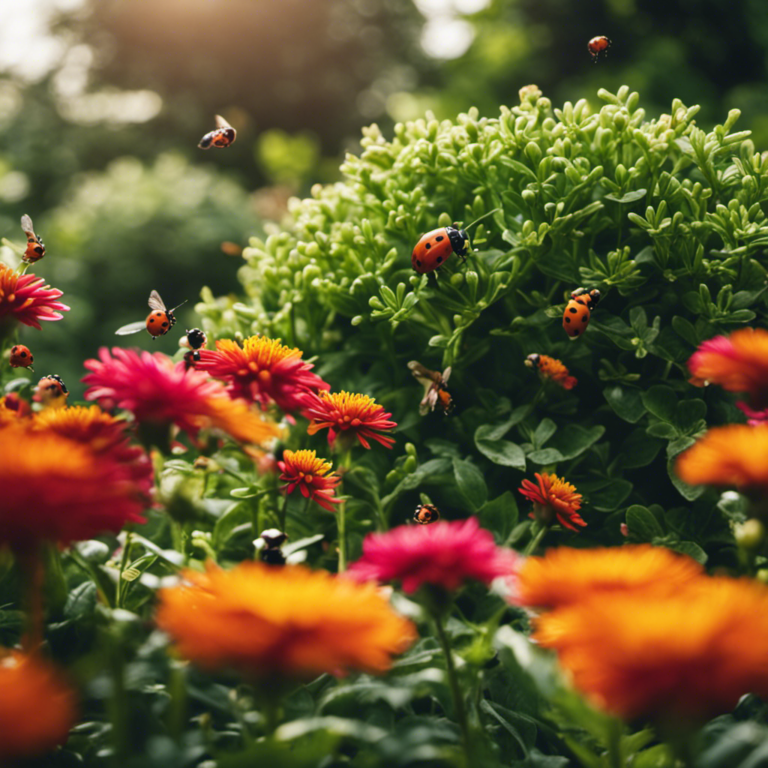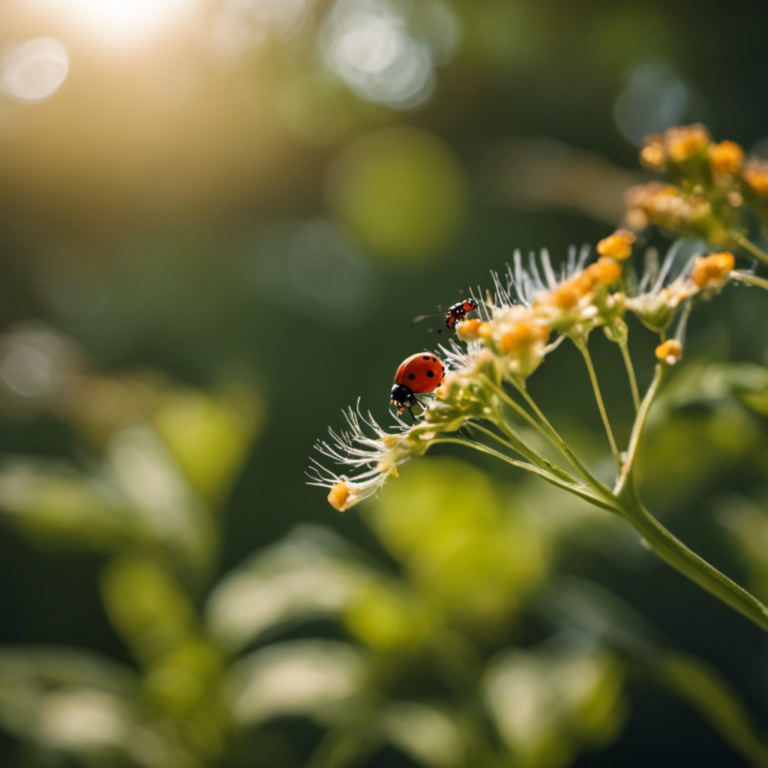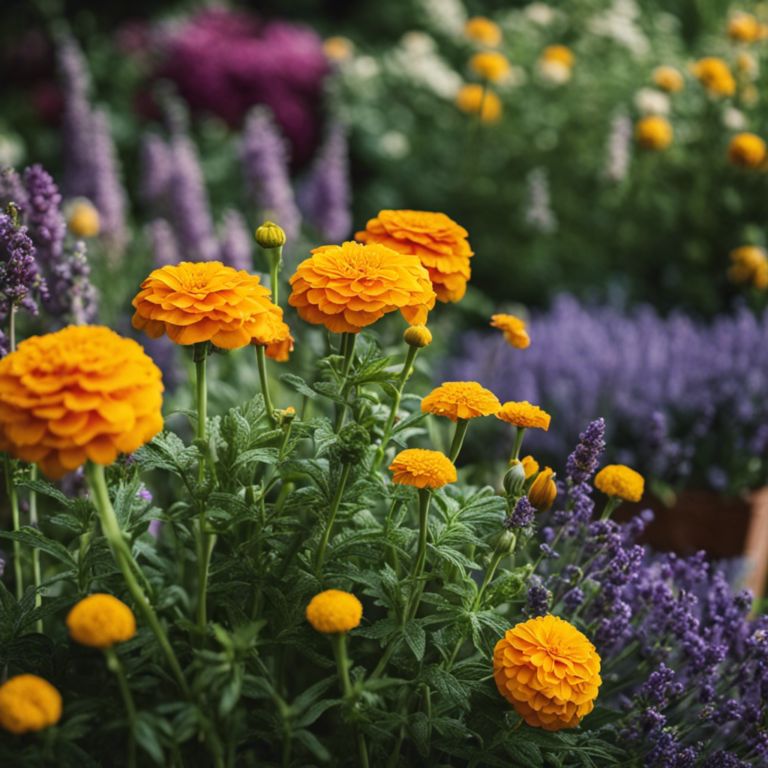Did you know that a majority of gardeners are now actively seeking environmentally-friendly methods to control pests in their gardens? If you’re one of them, you’ve come to the right place.
In this article, we will provide you with all the information you need to become a master of eco-friendly pest control in your garden. From identifying common garden pests to implementing sustainable pest management techniques, we will guide you every step of the way.
By following our advice, you can transform your garden into a thriving, pest-free oasis while also contributing to the well-being of the environment.
Let’s get started on this journey together!
Key Takeaways
Congratulations! You now have the knowledge to become an eco-conscious gardener. Bid farewell to harmful chemicals and embrace the power of organic pest control. By learning how to identify pests, attract beneficial insects, and use homemade remedies, you can create a sustainable and thriving garden. Take charge and let your garden flourish while making a positive impact on the planet, one pest at a time. Happy gardening!
Understanding Organic Pest Control
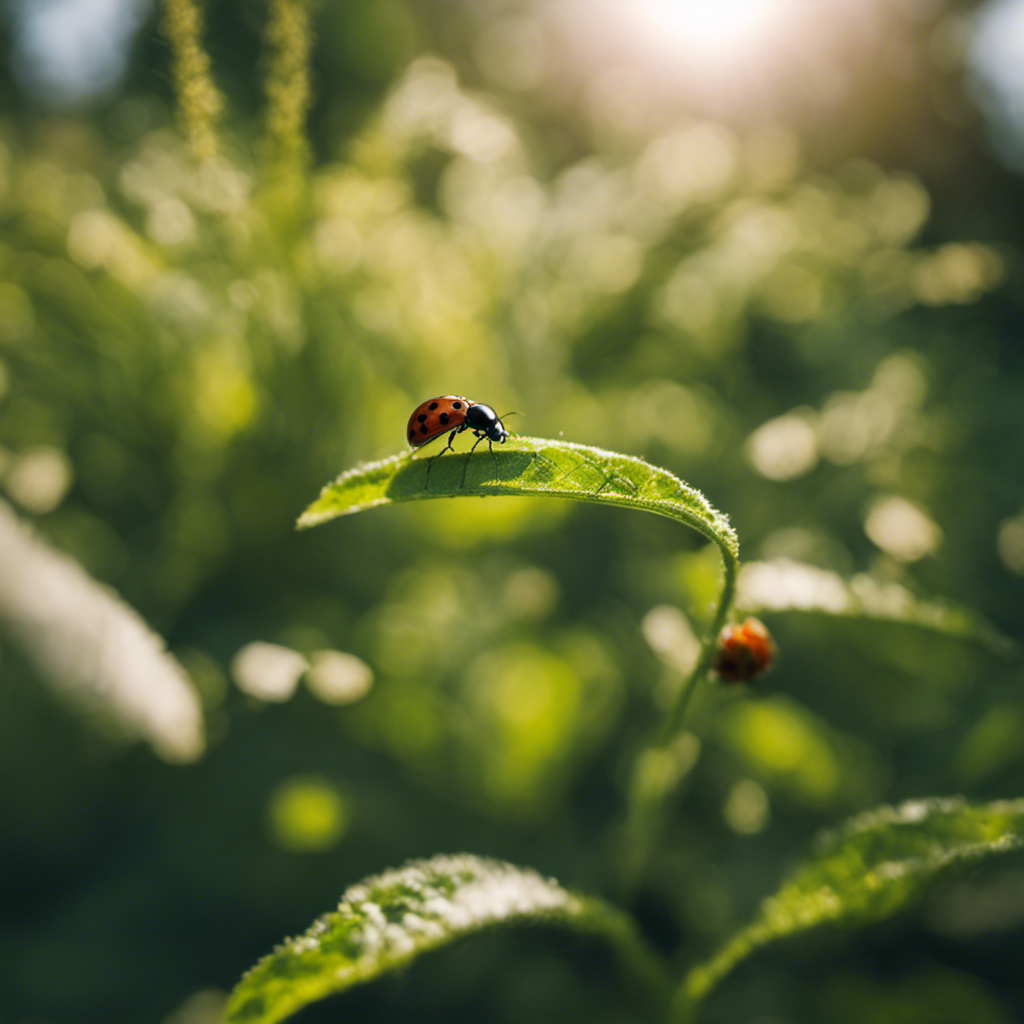
Understanding Organic Pest Control
To effectively manage pests in your garden without harming the environment, it’s important to have a good understanding of organic pest control methods. Organic pest prevention offers a safe and eco-friendly approach to handling pests in your garden. Unlike conventional methods that rely on harmful chemicals, organic pest control focuses on natural solutions that are both effective and sustainable. By utilizing eco-friendly pest management techniques, you can safeguard your plants from pests while minimizing the negative impact on the environment.
There are several common organic pest control methods that you can employ. Companion planting, for example, involves planting certain crops together to deter pests. Additionally, crop rotation helps disrupt pest life cycles and reduces the likelihood of infestations. Another method is introducing natural predators or using traps to catch pests. These techniques not only help control pests but also promote the overall health and balance of your garden ecosystem.
Embracing organic pest control is a responsible way to care for your garden and the environment. By choosing natural solutions over harmful chemicals, you can create a thriving garden that’s free from pests while preserving the well-being of the ecosystem.
As you explore organic pest control methods, you’ll discover the numerous benefits they offer in maintaining a healthy and sustainable garden. Remember, it’s essential to prioritize the well-being of your garden and the environment by opting for organic pest control methods.
Identifying Common Garden Pests
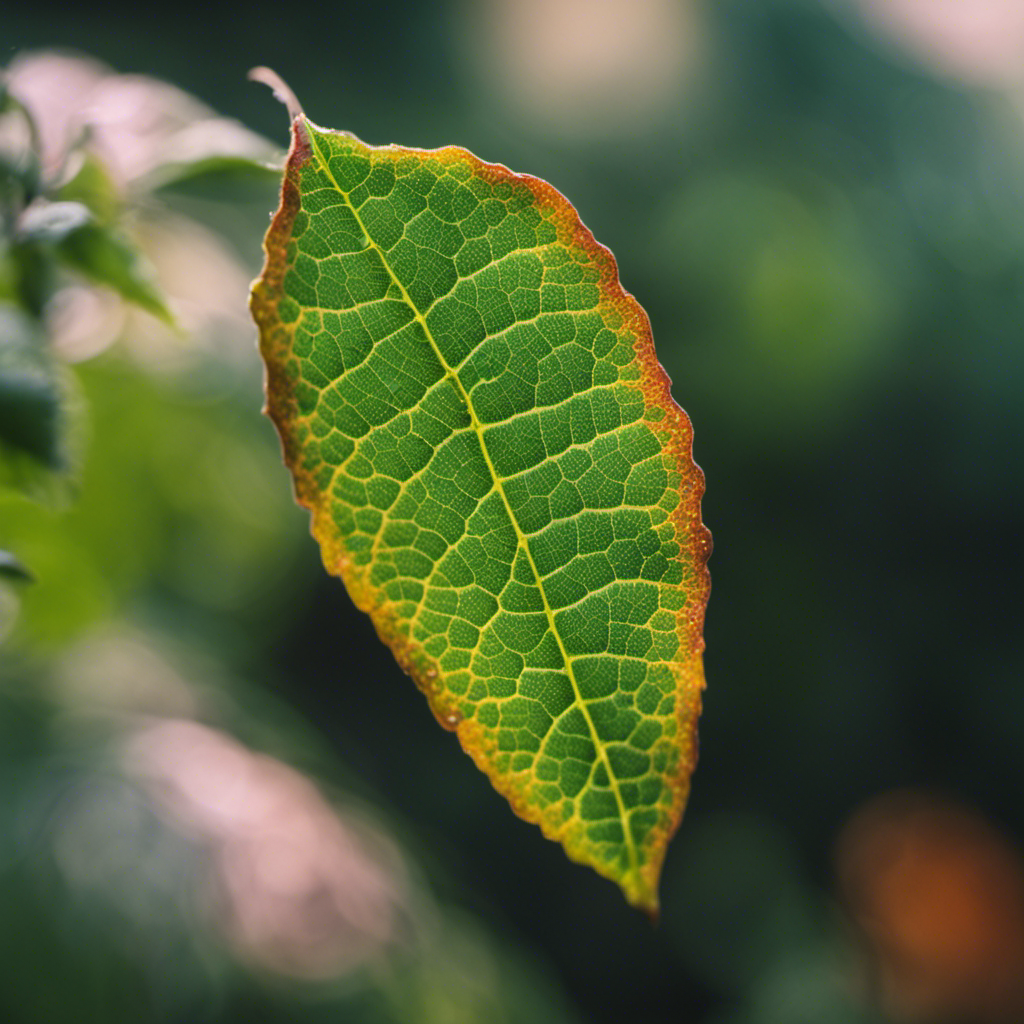
Identifying Common Garden Pests
Recognizing and identifying common garden pests is essential for effective and environmentally friendly pest control in your garden. When you can spot these pests, you can take the necessary steps to manage them naturally.
Integrated pest management is a holistic approach that combines various techniques, including natural pest deterrents, to control pests. Some pests commonly found in gardens include aphids, caterpillars, slugs, snails, and beetles.
Aphids are small insects with soft bodies that feed on plant sap, causing wilting and discoloration. Caterpillars, on the other hand, munch on plant leaves, leaving behind holes and chewed edges. Slugs and snails are notorious for damaging young seedlings, while beetles can wreak havoc on entire crops.
Understanding the characteristics and behaviors of these pests is crucial for implementing effective strategies to manage them in your garden.
Beneficial Insects for Natural Pest Control
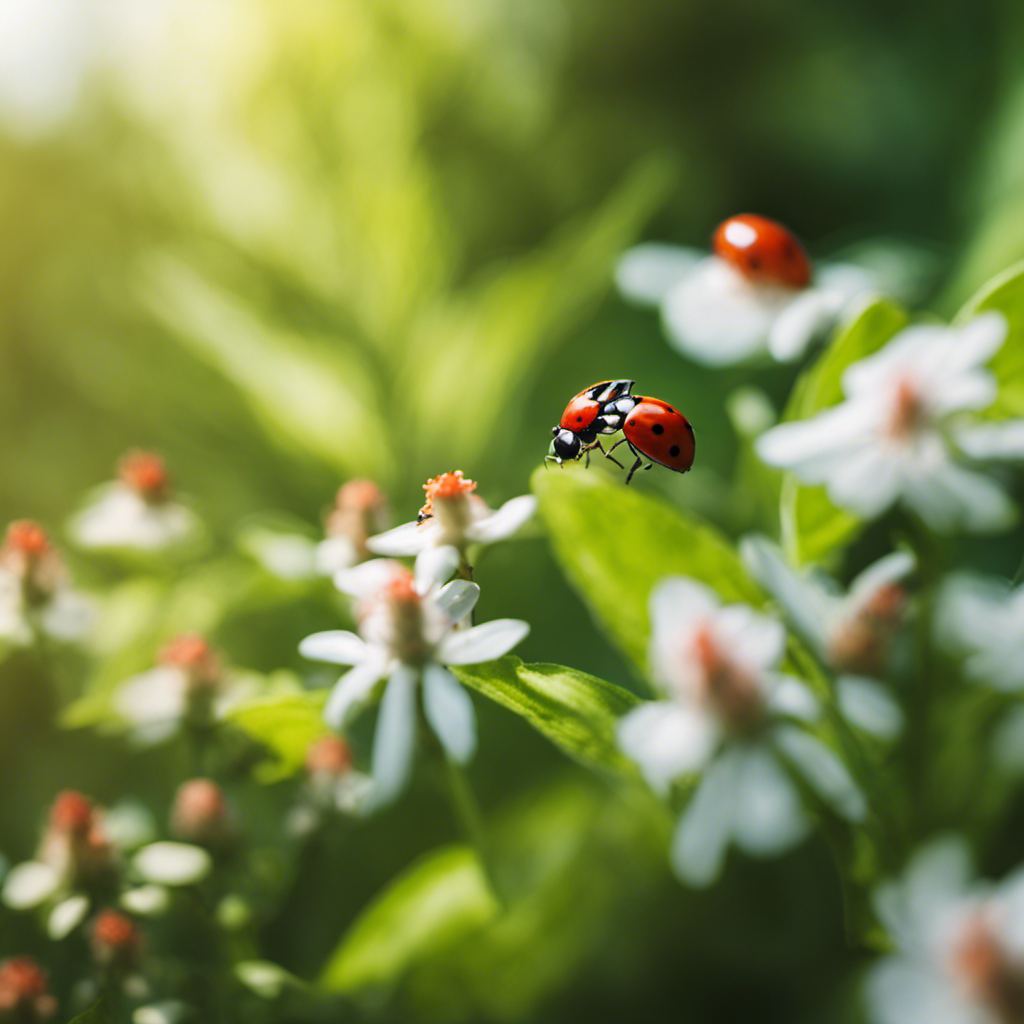
Harnessing the power of beneficial insects is a vital aspect of natural pest control in your garden. These predatory insects serve as nature’s own pest control experts, effectively eliminating harmful insects and maintaining a pest-free environment. One effective method of attracting beneficial insects is through companion planting. By strategically planting specific flowers, herbs, and vegetables, you can create an environment that draws in beneficial insects while repelling pests. Take a look at the table below to see which plants attract some commonly found beneficial insects:
| Beneficial Insect | Attracted Plants |
|---|---|
| Ladybugs | Dill, fennel, yarrow, marigold |
| Lacewings | Dill, yarrow, coriander, cosmos |
| Hoverflies | Calendula, yarrow, parsley, dill |
| Praying mantis | Sunflowers, dill, fennel, cosmos |
Homemade Organic Pest Control Remedies
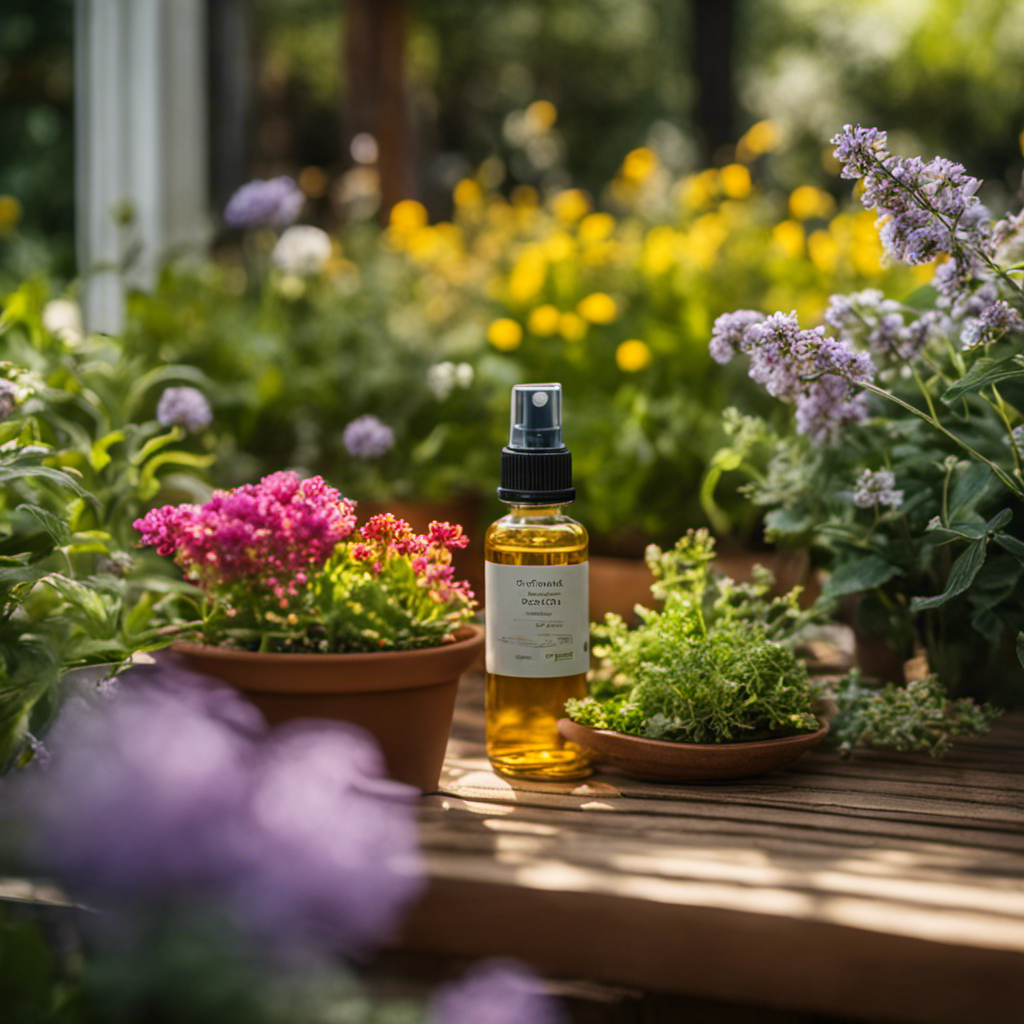
Controlling pests in your garden is easily achievable with homemade organic remedies made from common household ingredients.
These natural pest deterrents and non-toxic pest control options aren’t only effective but also environmentally friendly.
One simple solution is to mix liquid dish soap with water to create a homemade insecticidal soap. This can be sprayed directly on plants to eliminate aphids, mites, and other soft-bodied insects.
Another effective remedy involves blending garlic cloves and hot peppers with water to make a garlic and pepper spray. Strain the mixture and spray it on plants to repel pests.
Additionally, you can create a homemade slug and snail trap by burying a small container in the ground and filling it with beer. The pests are attracted to the smell and will drown in the liquid.
These homemade remedies provide a safe and natural way to control pests in your garden.
Implementing Sustainable Pest Management Techniques
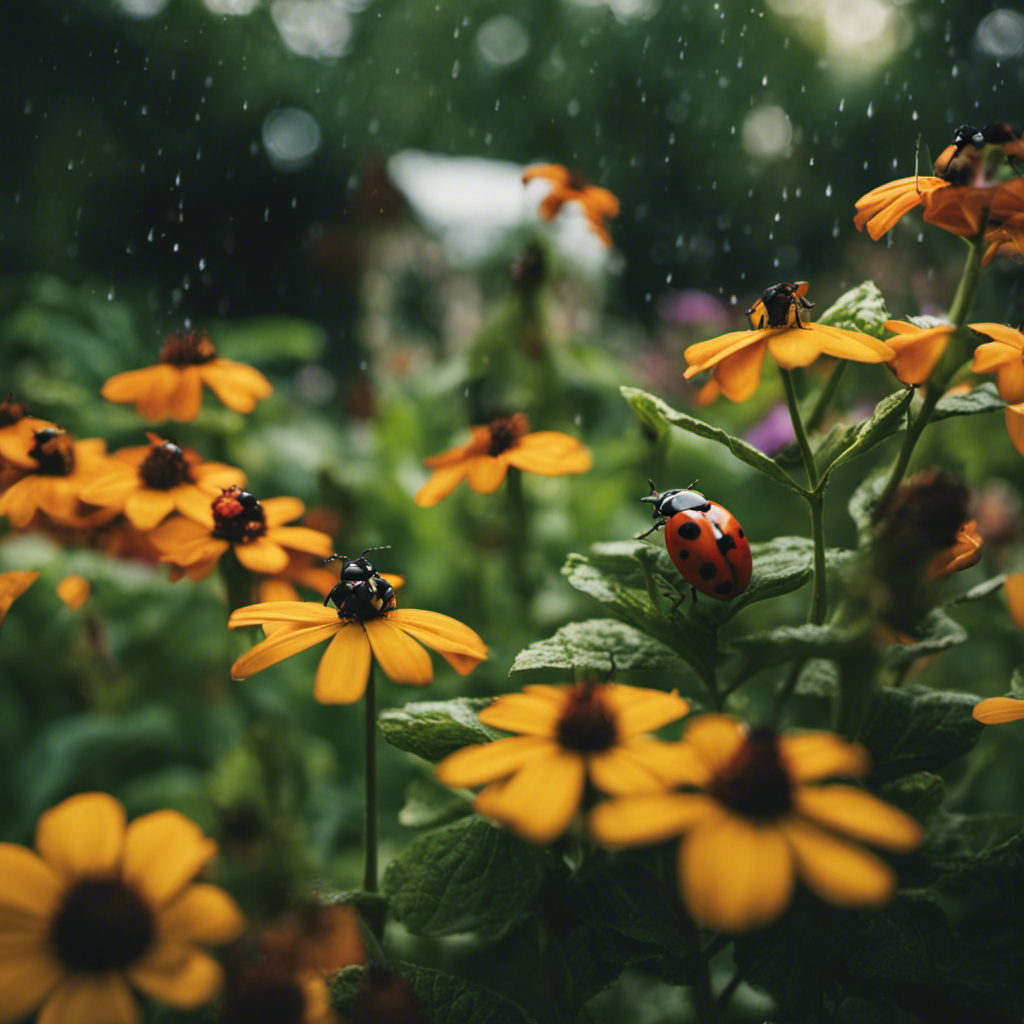
How can you effectively implement sustainable pest management techniques in your garden?
One of the best ways to do so is by using eco-friendly alternatives to chemical pesticides. These alternatives aren’t only better for the environment, but also for you and your family. For example, you can create your own natural insect repellents using ingredients like garlic, neem oil, or vinegar.
Another technique you can try is companion planting for pest control. Companion planting involves growing certain plants together that naturally repel pests. For instance, planting marigolds alongside your vegetables can help deter pests like aphids and nematodes.
Additionally, attracting beneficial insects like ladybugs and lacewings to your garden can naturally control pest populations.
Conclusion
Congratulations! You now have the knowledge to become an eco-conscious gardener.
Say goodbye to harmful chemicals and embrace the power of organic pest control.
By learning how to identify pests, attract beneficial insects, and use homemade remedies, you can create a sustainable and thriving garden.
Take charge and let your garden flourish while making a positive impact on the planet, one pest at a time.
Happy gardening!
